April 12th, 2025
7minute read
One of the most famous fighters of all time is theP-51 Mustang.
While it might have looked a bit odd, it played an important role during the post-WWII era.
It became a replacement for battle-weary P-61 Black Widow night fighters post-war.
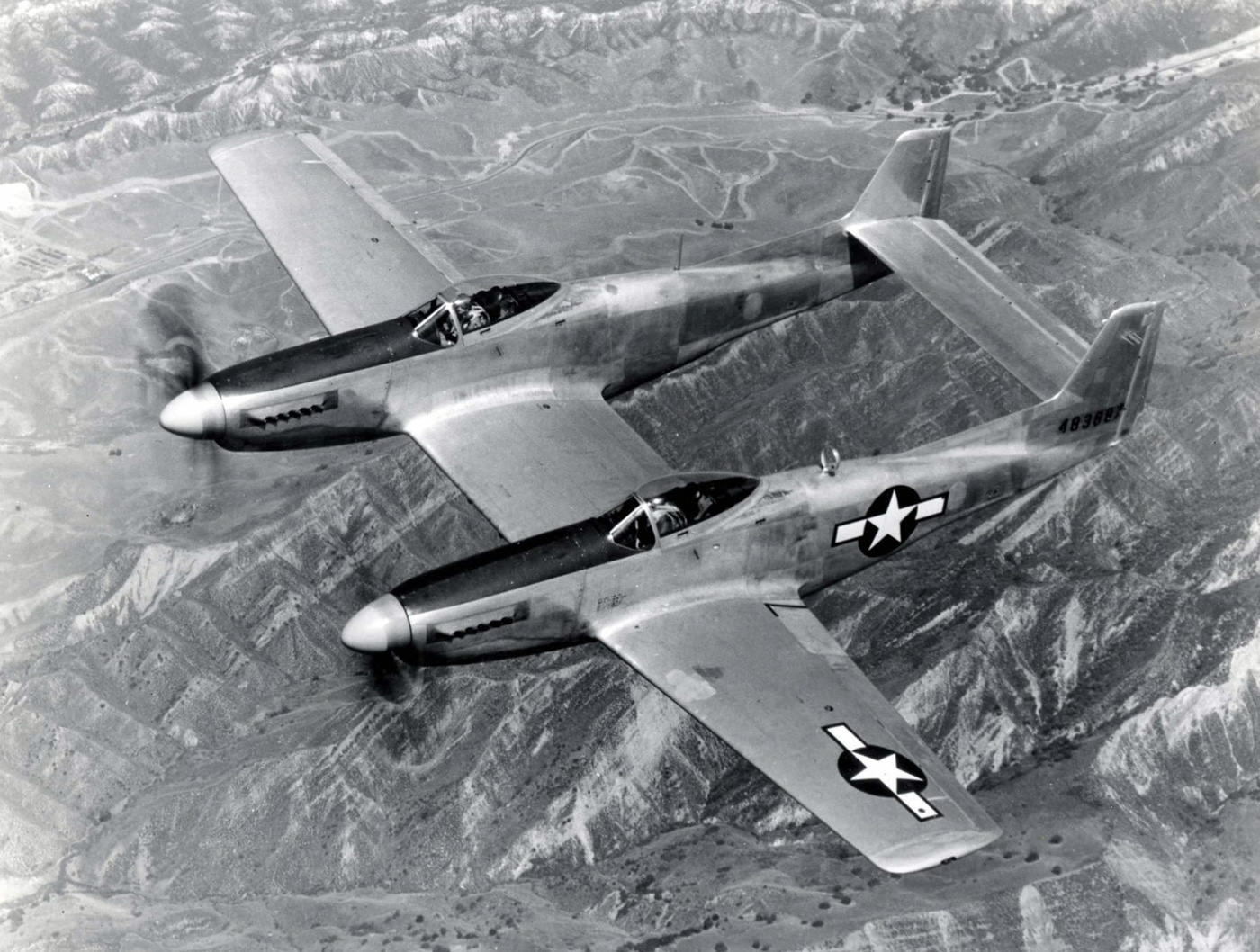
The North American F-82 Twin Mustang was much more than a combination of two P-51 fighters. Shown here in flight, the F-82 proved to be a capable fighter after World War II and in the Korean War.
Although its service life was short, its accomplishments were many.
The Design
Development of the Twin Mustang began in October 1943.
Many people think the twin Mustang was just two Mustangs bolted together, but not so.
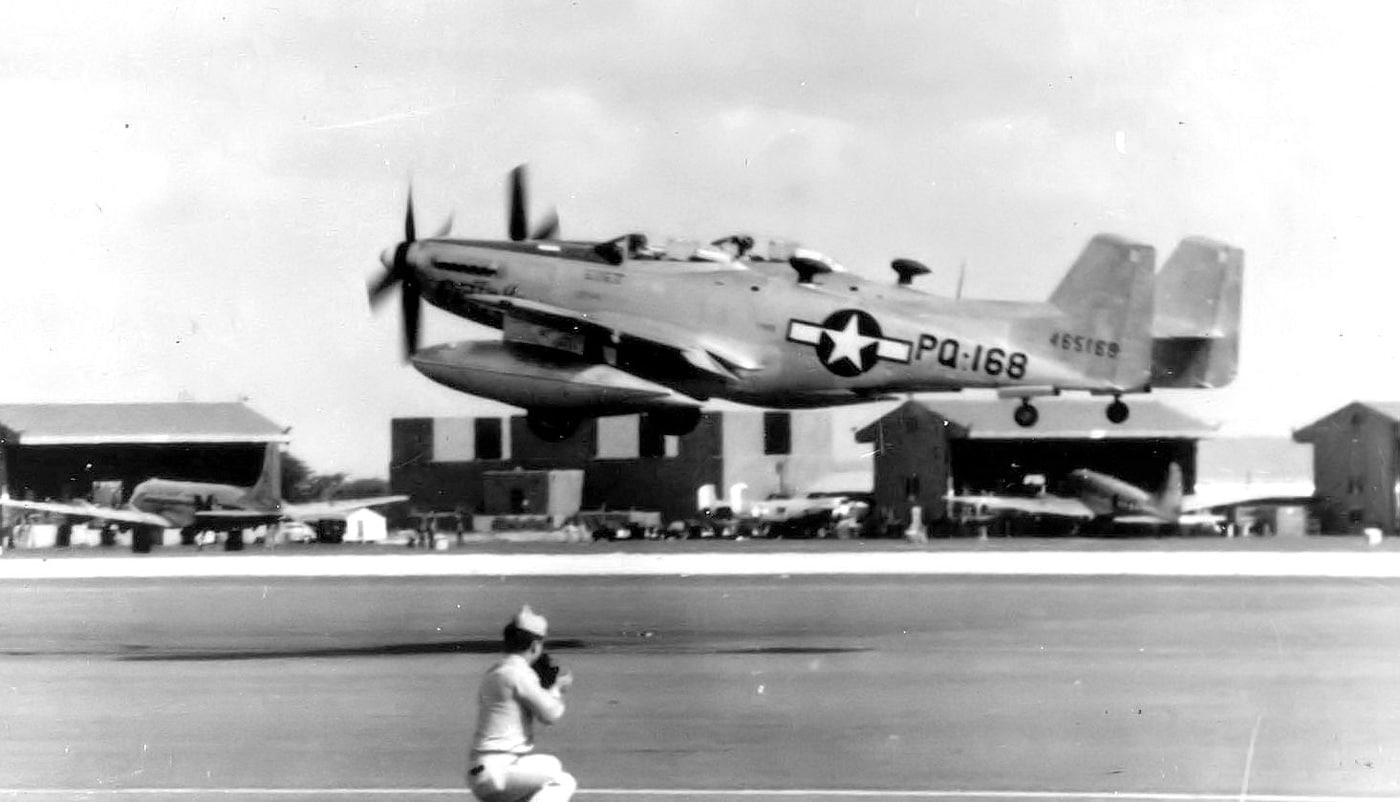
F-82B Twin Mustang “Betty Jo” taking off from Hickam Field, Hawaii, en route to New York. The aircraft flew 5,051 miles non-stop without refueling in 14 hours and 32 minutes. Image: U.S. Air Force
The P-82 has only a 20% commonality with the P-51 Mustang.
The two sections were joined together by a center wing section equipped with six .50-cal.
machine guns, each with a capacity of 400 rounds.
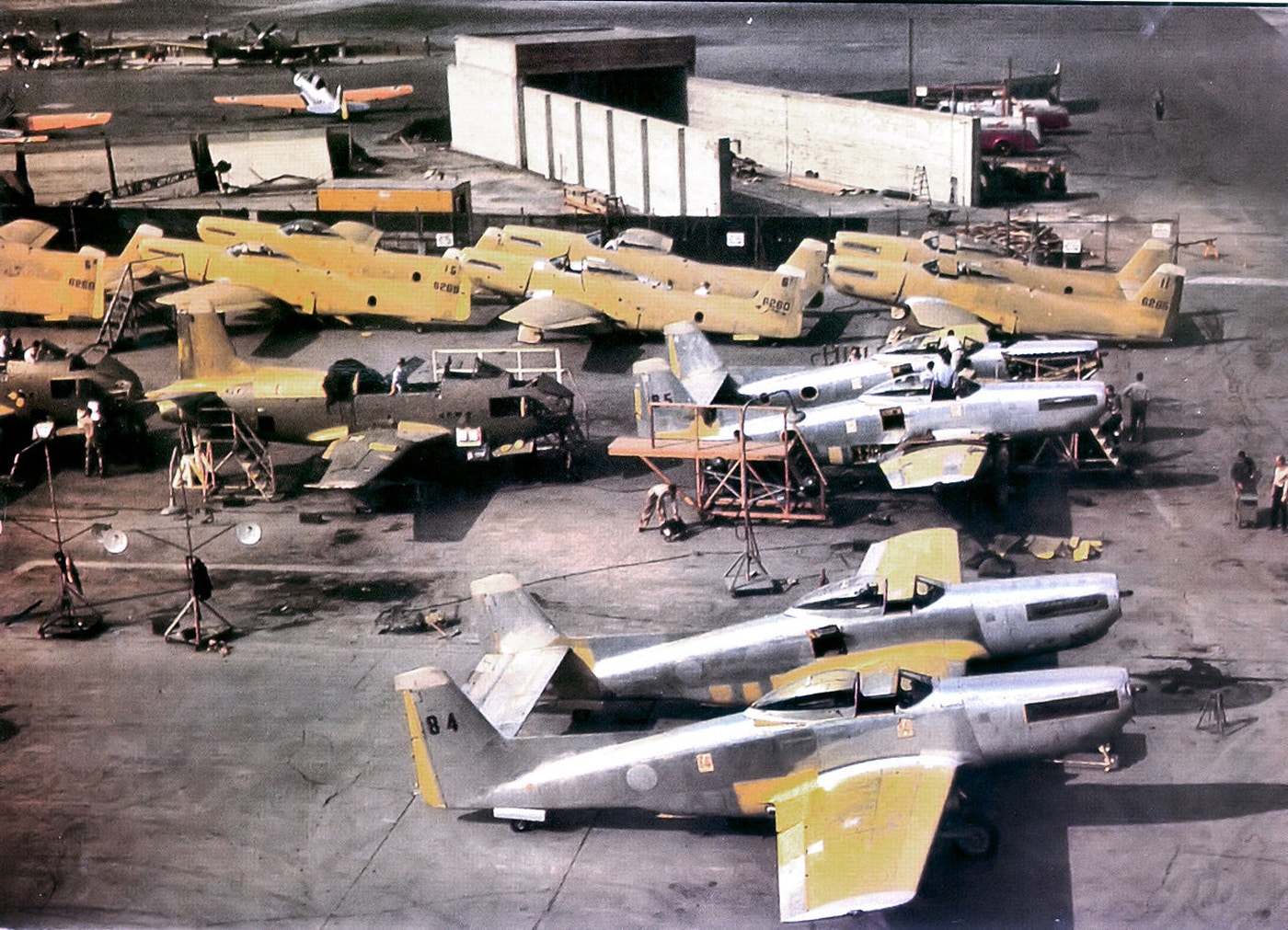
F-82 Twin Mustangs being built at a North American Aircraft facility in 1947. Two jet-engine FJ-1 Fury fighters, center left, are also under construction. Image: U.S. Air Force
As production increased, so did the licensing fees, so the U.S.A.F.
The service ceiling was approximately 40,000 ft.
The armament consisted of six.50-cal.
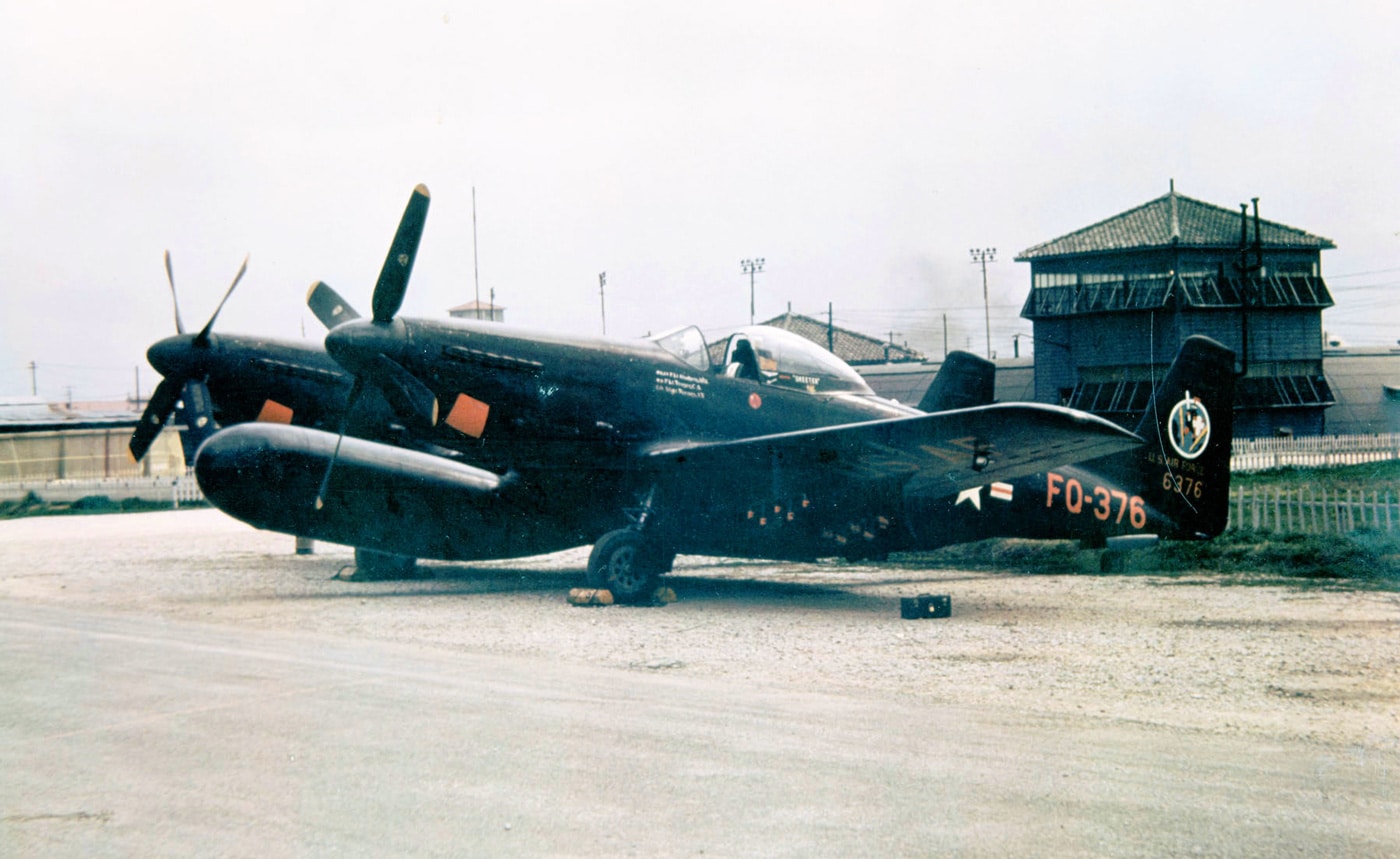
Shown here is a F-82G Twin Mustang assigned 68th Fighter Squadron (All Weather) based at Itazuke Air Base, now Fukuoka Airport, in Japan. Image: U.S. Air Force
machine guns, 25 5 rockets, and 4,000 lbs.
This record remains today as the longest non-stop flight by a propellor-driven fighter aircraft.
Korea and the First Kill
The P-82 finally saw combat in Korea.
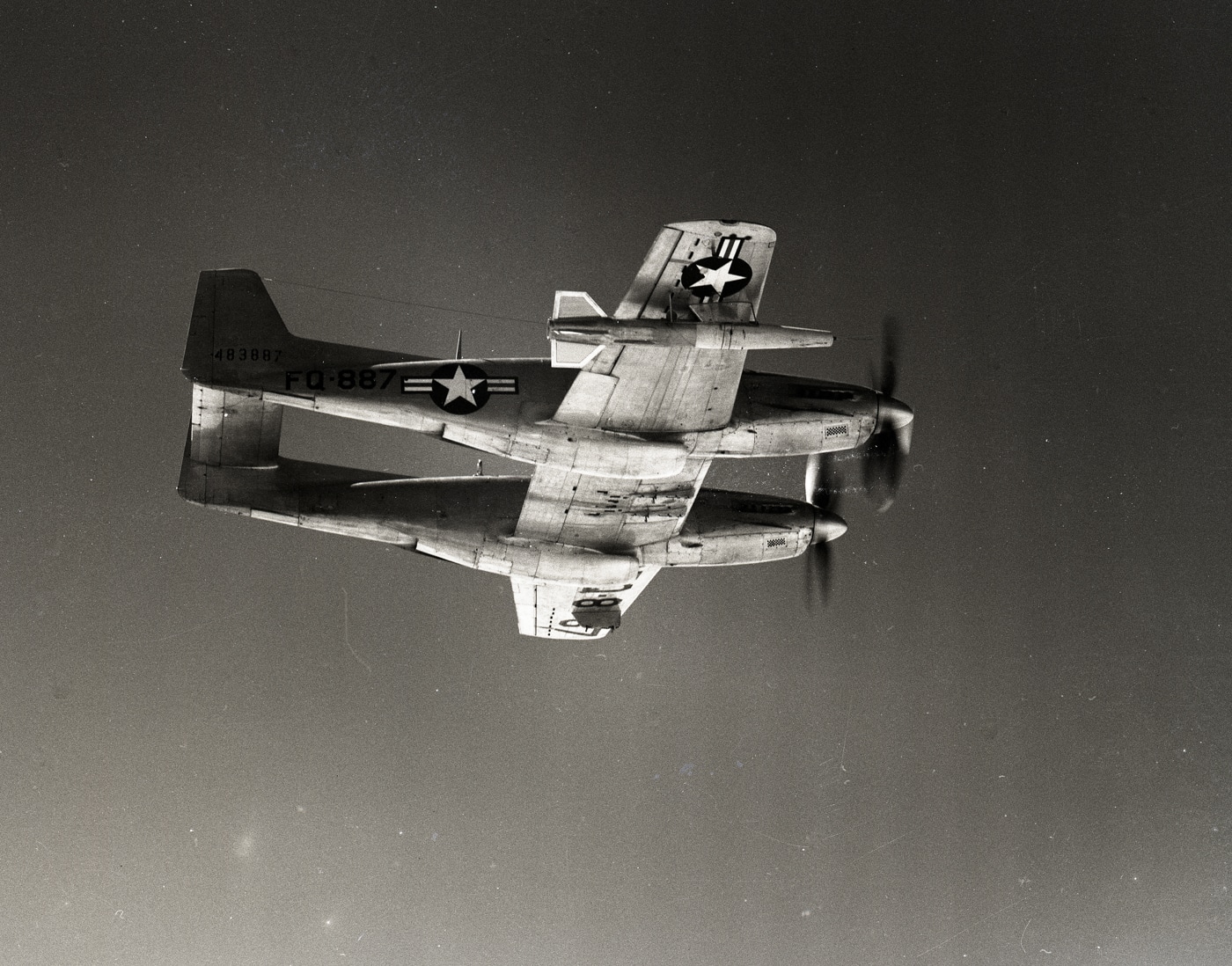
A North American F-82 Twin Mustang in test flight with a prototype ramjet missile attached to its wing. Image: NARA
Upon arrival, the crews saw large convoys of North Korean trucks and tanks.
This was considered the first combat mission of the Korean War.
F-82 crews flew cover at Inchon and assisted with the evacuation of 682 civilians.
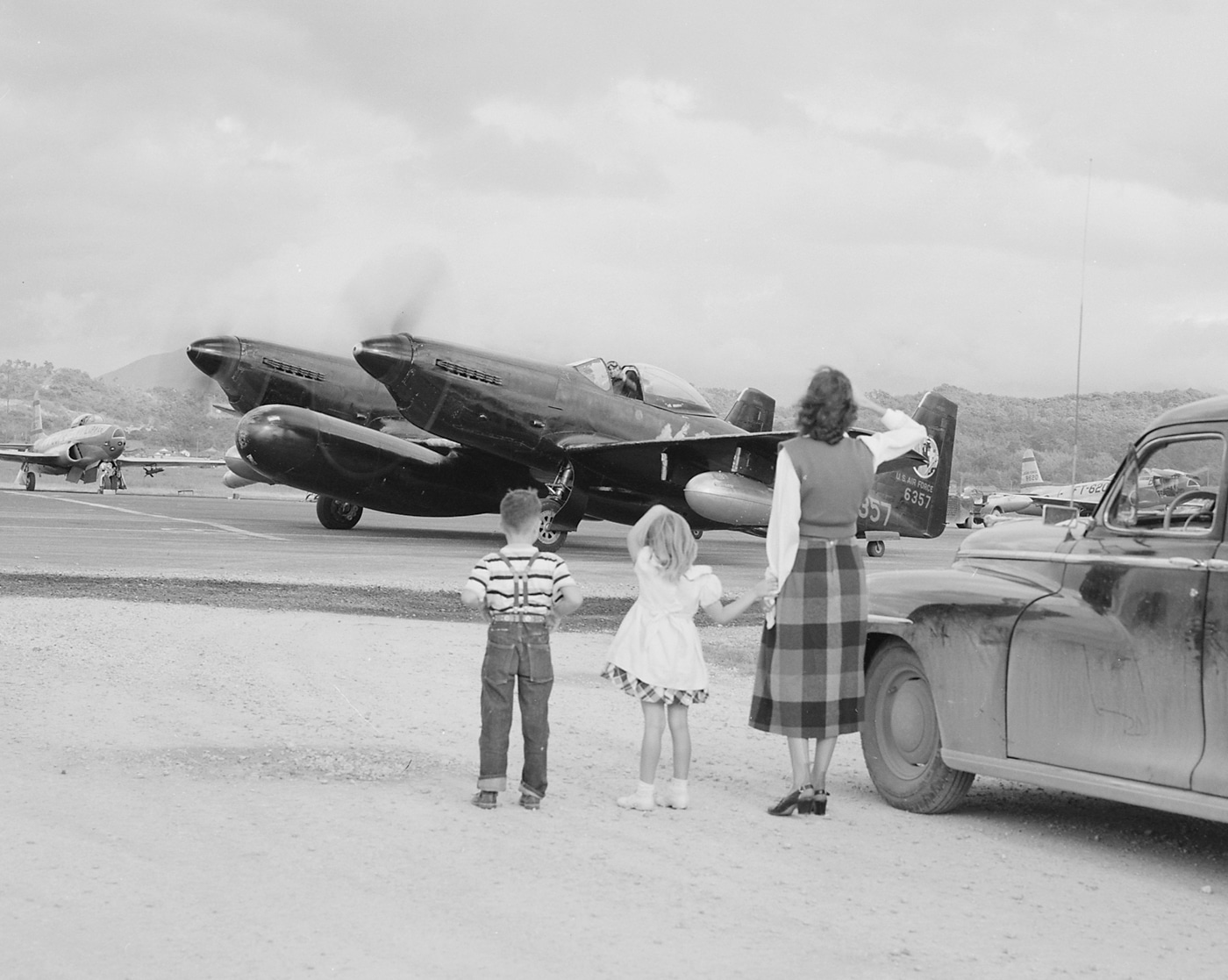
With a farewell from his family, Capt. Johnnie Gosnell taxis his North American F-82 as he departs an air base in Japan for a combat mission during the Korean War. Image: NARA
On June 27th,27 F-82s from the 347thProvisional Fighter Group were dispatched from Yokota AB and Itazuke AB to Kimpo.
A YAK-11 fired and scored hits on one of the groups F-82s.
Lt William Skeeter Hudson went into pursuit and hit the YAK with a burst of .50 caliber.
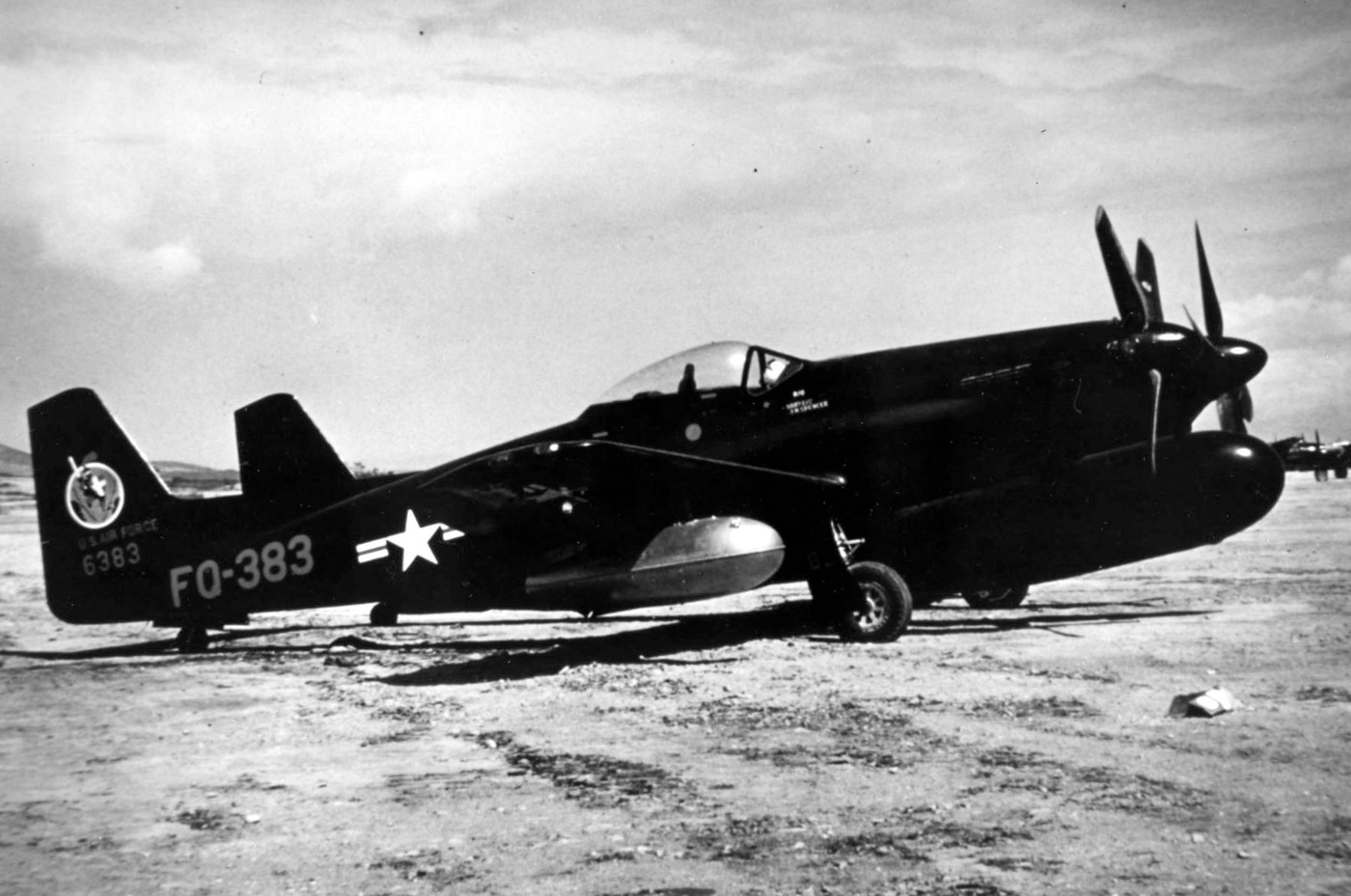
This F-82G Twin Mustang of the 68th Fighter Squadron was flown by Lt. Hudson and Lt. Fraser on June 27, 1950, when they scored the first victory of the Korean War. Image: U.S. Air Force
The North Korean pilot bailed while the observer went down with the aircraft.
North to Alaska
In 1948, six F-82 F/Gs were modified for cold weather.
Retirement
The writing was on the wall for the Mustang.
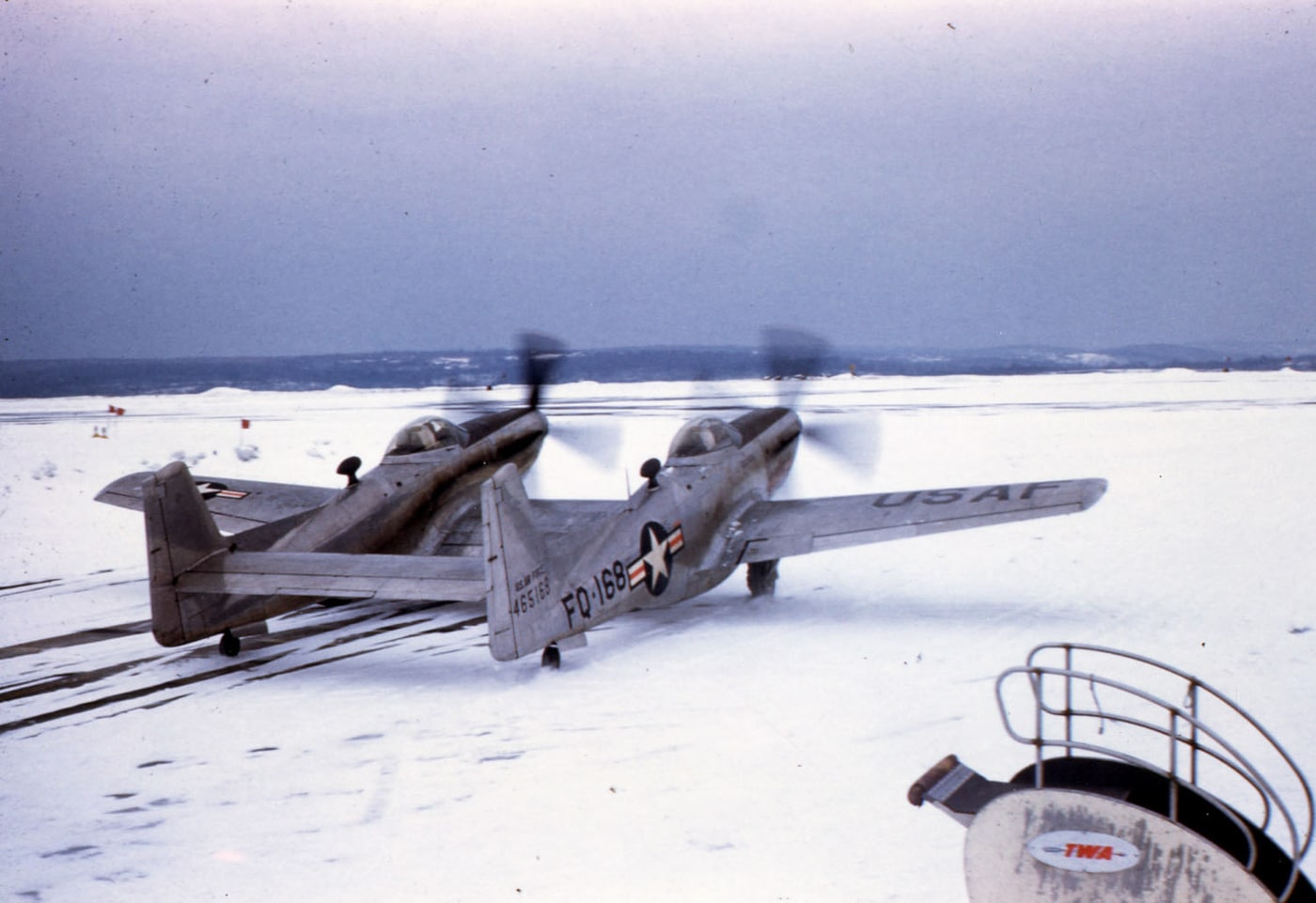
A North American F-82B Twin Mustang on a snow covered taxiway moves to the runway for take off. Image: U.S. Air Force
Constantly flying extended-range and combat missions caused maintenance issues.
The F-94 Starfire steadily replaced Twin Mustangs in Korea and Alaska.
In June 1953, all remaining F-82s were sent to Elmendorf AFB for disposal.
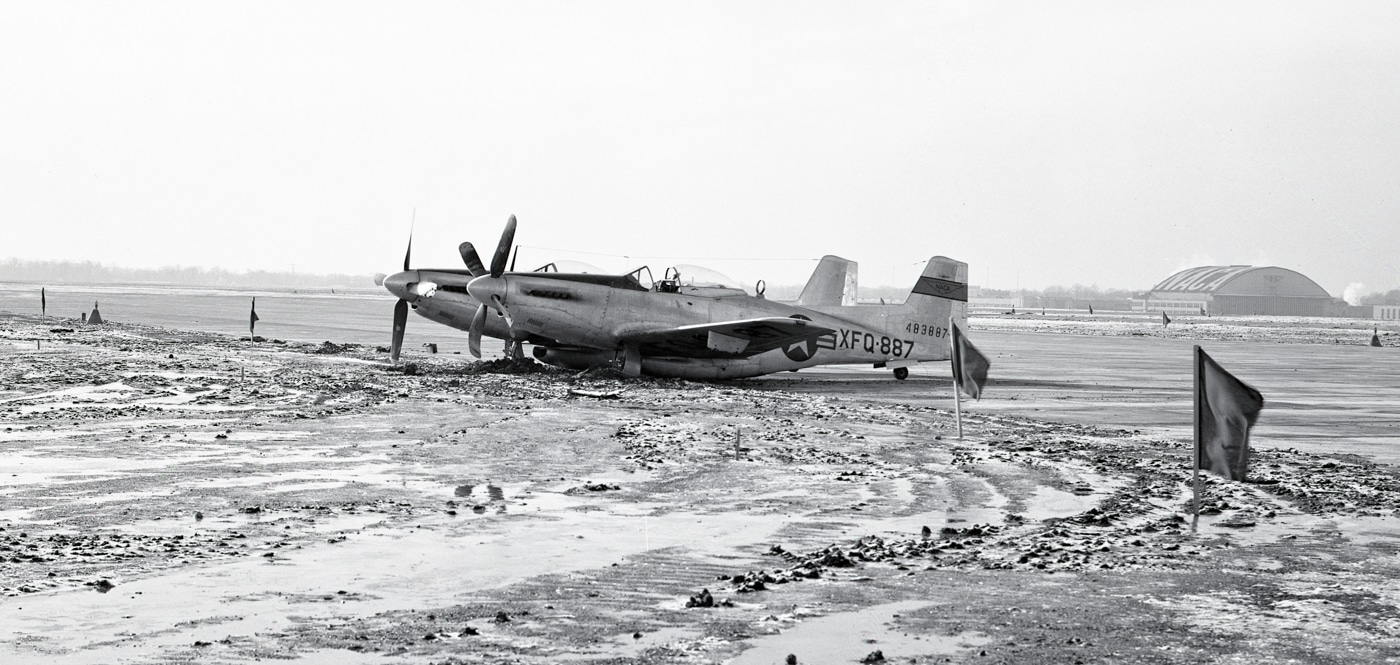
An XF-82 after sliding off the runway at Cleveland Municipal Airport in 1949. The propeller and radiator housing were damaged, and the wheels sank into the mud. Image: NASA
The Legacy
The F-82 served admirably wherever it was needed.
In Korea, it flew the first combat mission of the war and scored the first kills.
All in all, pretty impressive for a truly bizarre-looking fighter.
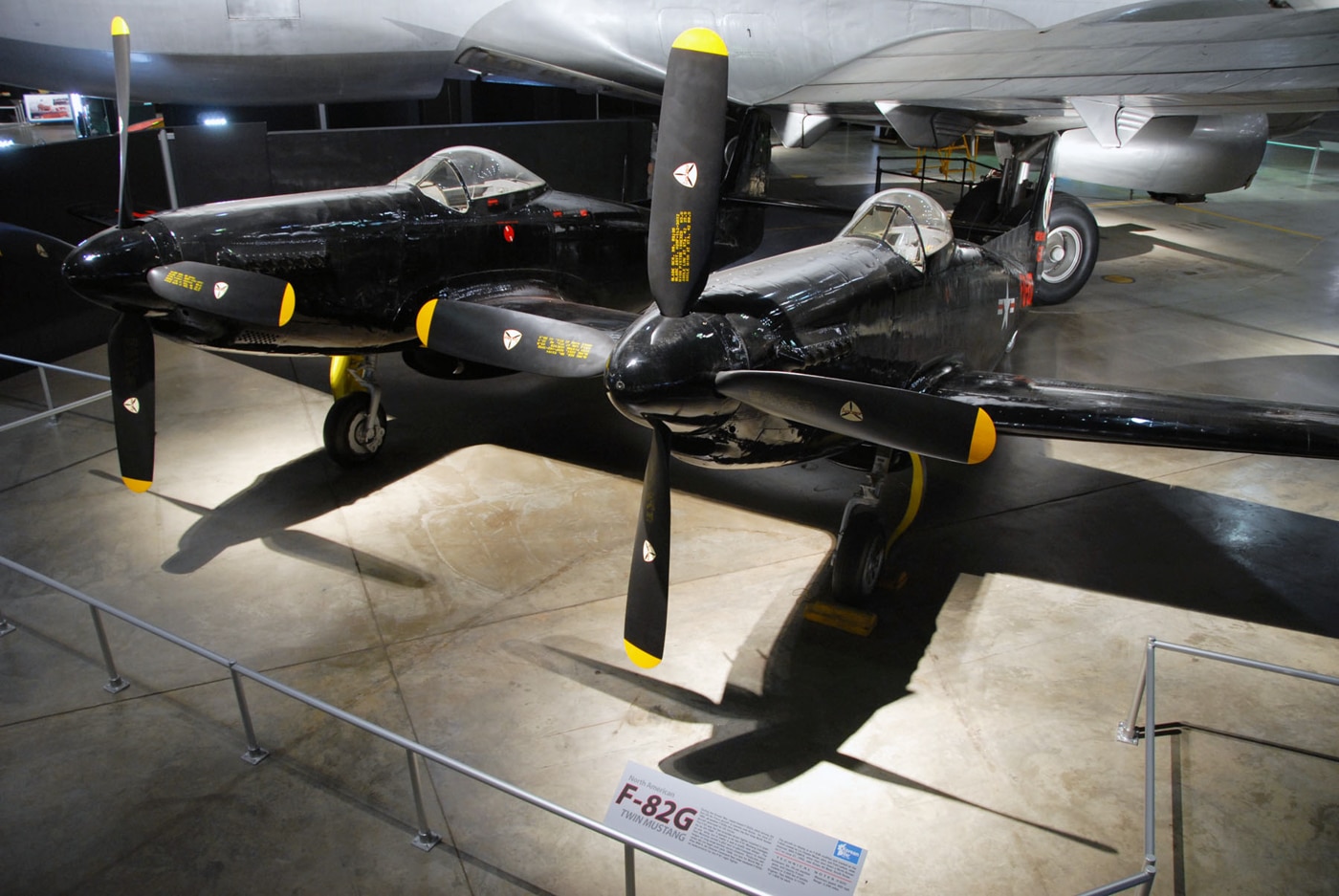
A North American F-82G Twin Mustang in the Korean War Gallery at National Museum of the U.S. Air Force. Image: U.S. Air Force




